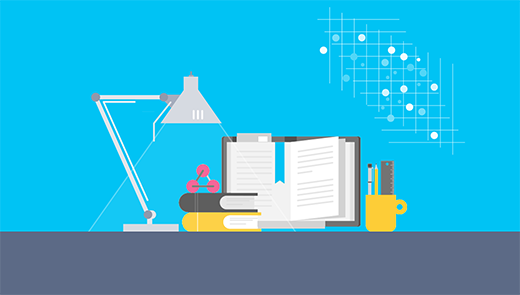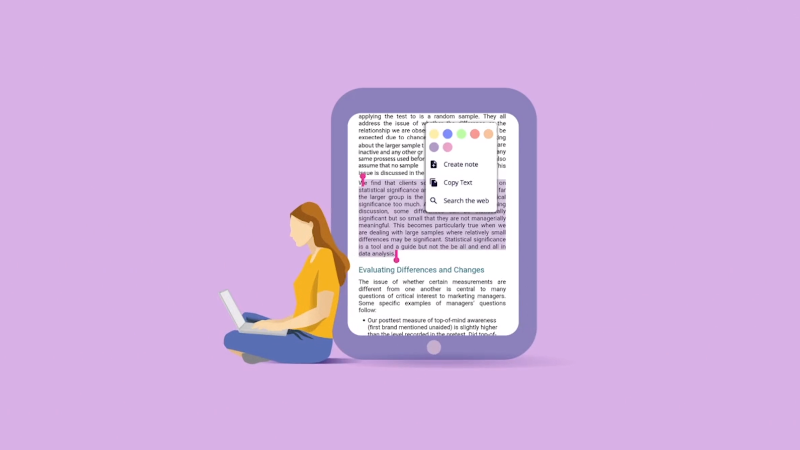
Healthy Study
Please remember to take care of yourself and use good study habits during the upcoming assessment periods, including taking regular breaks, resting well and doing things that you enjoy in-between studying!
The university's Mental Health and Wellbeing Team has various online resources that you may find useful on their webpage, including WLV Student Life Connect, a 24/7 digital mental health support service and Student Space, helping you to explore a range of trusted information, services and tools to help you with the challenges of student life
We have shared some info about what will be available to you from the libraries to help you study healthy as well as some further tips and guidance from our Wellbeing Champions and Mental Health and Wellbeing Team
1. Take regular breaks
Remember to plan your study and revision so that you build in time to take a break. You don't have to do much, but a light walk in the fresh air will be beneficial or you could visit one of our Wellbeing Spaces (we have one on the ground floor in Harrison Library!) on campus where you can chill, do some colouring or do a jigsaw amongst other things.
.jpg)
2. Don't try to cram in too much!
Plan your revision to build in enough time so you are not cramming in too much last minute and reduce the likelihood of increasing stress levels and feeling panic. Start early and why not use some freely available tools such as a Pomodoro timer to help structure your revision using the Pomodoro technique, breaking down work into intervals to make sure you keep the study and rest well balanced?
Image by Silvia from Pixabay

3. Stay hydrated and well nourished
Make sure to drink water and eat healthy snacks throughout your study session to keep your mind and body energized!
The library will be offering free teas and coffee during assessment weeks and each library has nearby access to free water fountains so please ask a member of the team where the nearest is located.
Image by Darko Djurin from Pixabay

4. The sound of study
Use music or soundscape apps to help keep you focused and relaxed during your study!
Instrumental music usually works quite well but there are many freely available apps and sites that provide a range of soundscapes that you can tailor to find a mix that works just right for you (a few examples you may want to explore include: mynoise.net & asoftmurmer.com)
Image by Karolina Grabowska from Pixabay

5. Don't sleep on ....sleep!
Getting a good night's sleep is incredibly important for your ability to concentrate and learn effectively. It's easy to underestimate just how much of a positive impact it can have on your cognitive abilities! Additionally, ensuring that you get enough restful sleep can help support your memory function, making it easier to retain and recall the information you've been studying. So make sure you prioritize getting the sleep you need for your overall well-being and, hopefully, academic success!
Image by wal_172619 from Pixabay

Wellbeing Champions: Top tips for dealing with stress this assessment period
- Make a list of the things you have to do, in order of priority, then split them up into manageable chunks for each hour, each day, each week etc. Set realistic goals - so that you are not trying to have everything done all at once, this will seem less overwhelming, Make sure you use achievable milestones!
- Take a screen break - We spend so much time on screens, it's good to have a break! Maybe go out for a walk and get some fresh air or have a relaxing bath!
- Plan at least 1 fun thing for each week - This ensures you always have something to look forward to, and you feel like the hard work is worth it when you have a reward coming.
- Make time to socialise with those you love and care about such as friends or relatives - this gives you downtime, as well as maintains strength of connections so you have good social support
- Treat yourself - whether that be a self-care evening or an item of clothing you've wanted for ages.
- Confide in lecturers and staff for help if you don't understand something or on issues that are complex or difficult to deal with.
- Utilise times of your day such as showering, getting ready to sleep and commuting as a time to be mindful, and appreciate aspects of your life / the people in your life. This mitigates bad thoughts and generally helps you feel better and reduces intense stress responses.
- Breathing exercises - there are many videos online and it is so beneficial.
- Spending time outdoors - whether it's going for a walk, listening to the birds, being in your garden, or taking your dog on a walk, green spaces promote good mental health. Being in a new or outdoor environment can help alleviate bad thoughts.
- Yoga! A class feels like part of a community and encourages you to take a break. Exercise is a great destress
- Not forcing yourself to work if you don't feel up to it. As a one-off, this is okay but have to be careful not to procrastinate too much.
- Make sure to get enough sleep all the time, not just before exams or submissions.
- Plan ahead: Start the work weeks in advance, even if it's doing some research and saving relevant papers. It all helps!
- Attend core lectures and seminars - you will have been taught what is in the assignment or exam. Attendances is important!
- Make your favourite food! Prioritise eating well - your body deserves good food. Hydration is also key!
- Start/end your day by listening to your favourite happy song. It really works!
- Take a social media break! Log out of the app you spend the most screen time on, for a day.


/prod01/wlvacuk/media/departments/digital-content-and-communications/images-2024/240328-Varsity-Line-Up-Resized.jpg)
/prod01/wlvacuk/media/departments/digital-content-and-communications/images-18-19/220325-Engineers_teach_thumbail.jpg)
/prod01/wlvacuk/media/departments/digital-content-and-communications/images-2024/240515-Spencer-Jones-Award-Resized.jpg)
/prod01/wlvacuk/media/departments/digital-content-and-communications/images-2024/240229-The-Link-Resized.jpg)
/prod01/wlvacuk/media/departments/digital-content-and-communications/images-2024/240516-Andy-Gibson-Resized.jpg)

.png)
.png)